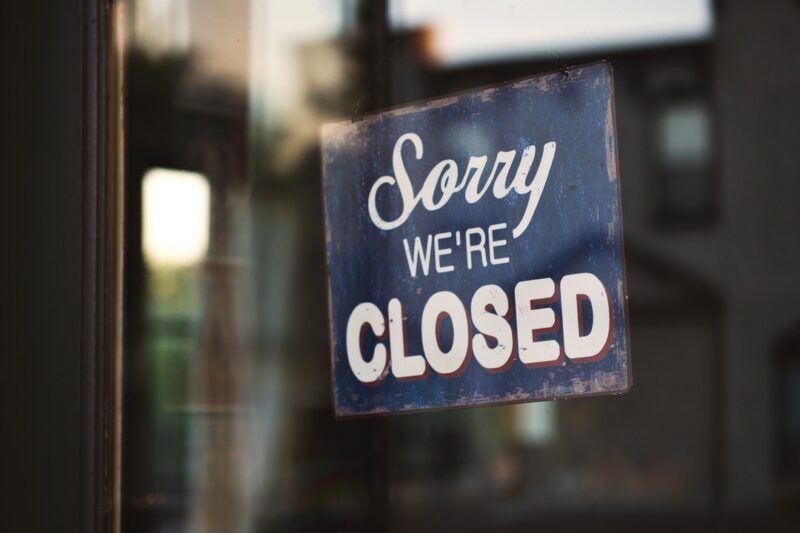
Why Do Businesses Fail? 7 Reasons for Bankruptcy
Running a business is not all it is cracked up to be. You may be your own boss and get the highest reward, but a lot can go wrong.
Every year, 20,000 of these businesses end up bankrupt.
But, why do businesses fail? Why do businesses go bankrupt?
Here are seven of the top reasons.
1. Poor Decision-Making
Every company needs strong and effective leadership at the top of the food chain. The problem is, not every company has that.
Some businesses are left with owners and CEOs that make reckless decisions that are not in the best interest of the company. Some companies have more runway than others here, but too many bad decisions can make your company obsolete.
2. Competition
Sometimes, businesses go bankrupt because they have new competition directly challenge them that they simply cannot beat. This can happen on a variety of scales.
A Walmart can put a local grocery store out of business, Facebook made MySpace irrelevant on social media, and a new pizza place in town that has higher quality food and service can take a lot of business from the old one.
Whatever the scenario, competition can eliminate other businesses.
3. Outdated Model
Some businesses fall victim to being outdated. One of the best examples of this is Blockbuster.
Because Netflix came along and made online streaming of movies and TV shows available, it made Blockbuster’s entire business model irrelevant.
Unfortunately, by the time Blockbuster tried to adapt, it was too late. So, the old phrase “adapt or die” definitely applies in business in order to avoid bankruptcy risk.
4. Market Change
Unfortunately, there are times when a business just has no control over how valuable its product is. This is because a market change can eliminate demand without a business doing anything particularly wrong.
For example, a real estate company may have had a hard time during the Housing Crisis in 2008 when not many people could buy a house at the rates that the market was used to.
5. Finances
This is an easy one, as some businesses just do not have the finances to make it through a slow period that lasts too long.
A perfect example is the COVID pandemic. This put a lot of business to a halt, and if one was barely breaking even before that, the pandemic lost them any chance at retaining a profit, while still potentially being on the hook for business expenses.
6. Unexpected Circumstances
This can be anything that devastates the flow of a business. Using COVID again as an example, nobody could have seen this coming, so businesses may not have been prepared to lose say six months of income by not being able to operate.
Another example can be a natural disaster, with Hurricane Sandy in the northeast taking out a few businesses because few could have predicted along the shorelines up there that a strong hurricane would hit.
7. Too Much Expansion
Some business owners get anxious to continue growing and buying property. Well, some do this too quickly, and then do not have the finances they thought they might when business surprisingly slows down.
One example here could be Donald Trump with casinos back in the 1980s. He already had two in Atlantic City but added a third in the Trump Taj Mahal.
That one created a lot of financial questions for his business assets, all because he overspent and was too aggressive about expanding the brand.
Answer to ‘Why Do Businesses Fail?’
These are just seven of the reasons that may answer the question of ‘why do businesses fail?’. Remember all of these and do your own research to make sure you are not one of the 20,000 yearly bankrupt businesses.
Read more of our articles for additional business tips.
